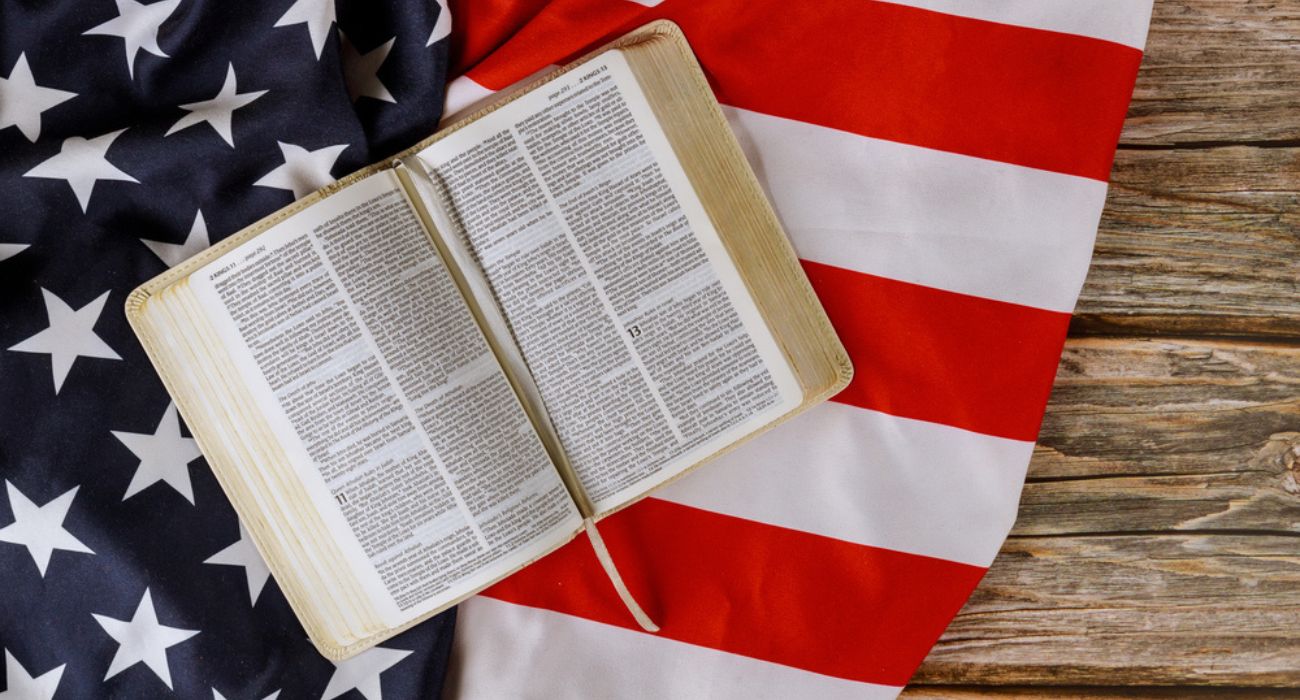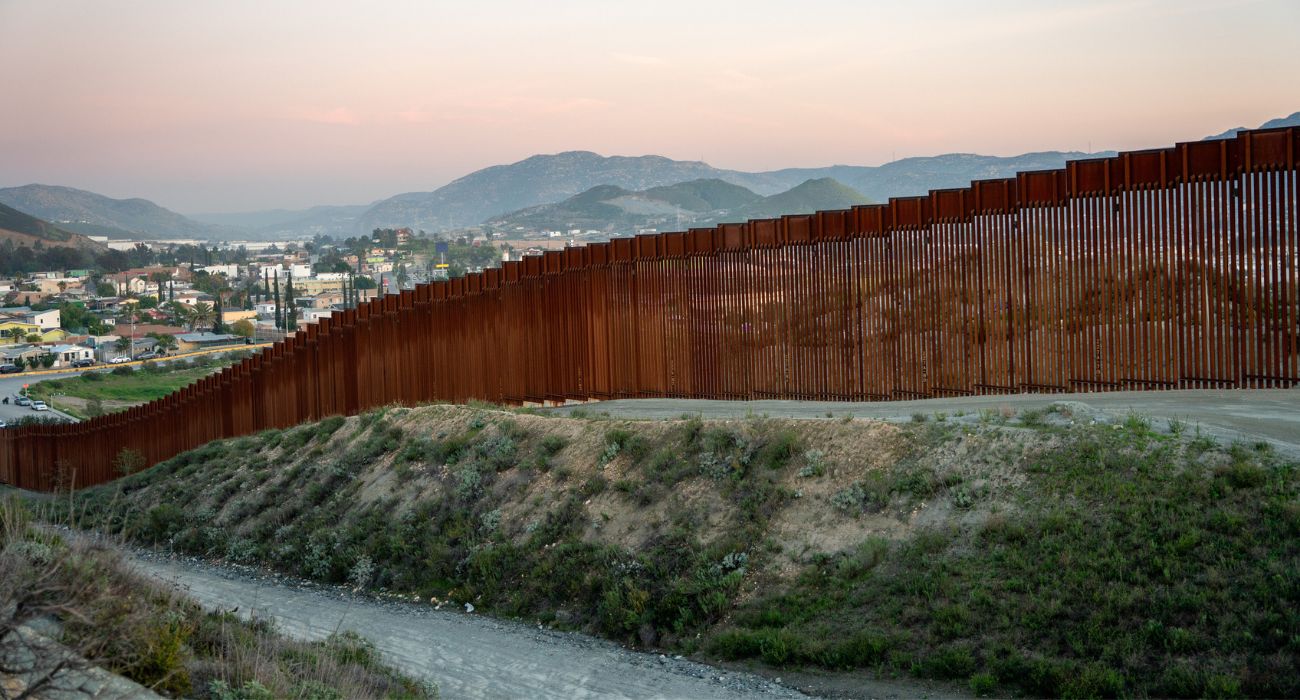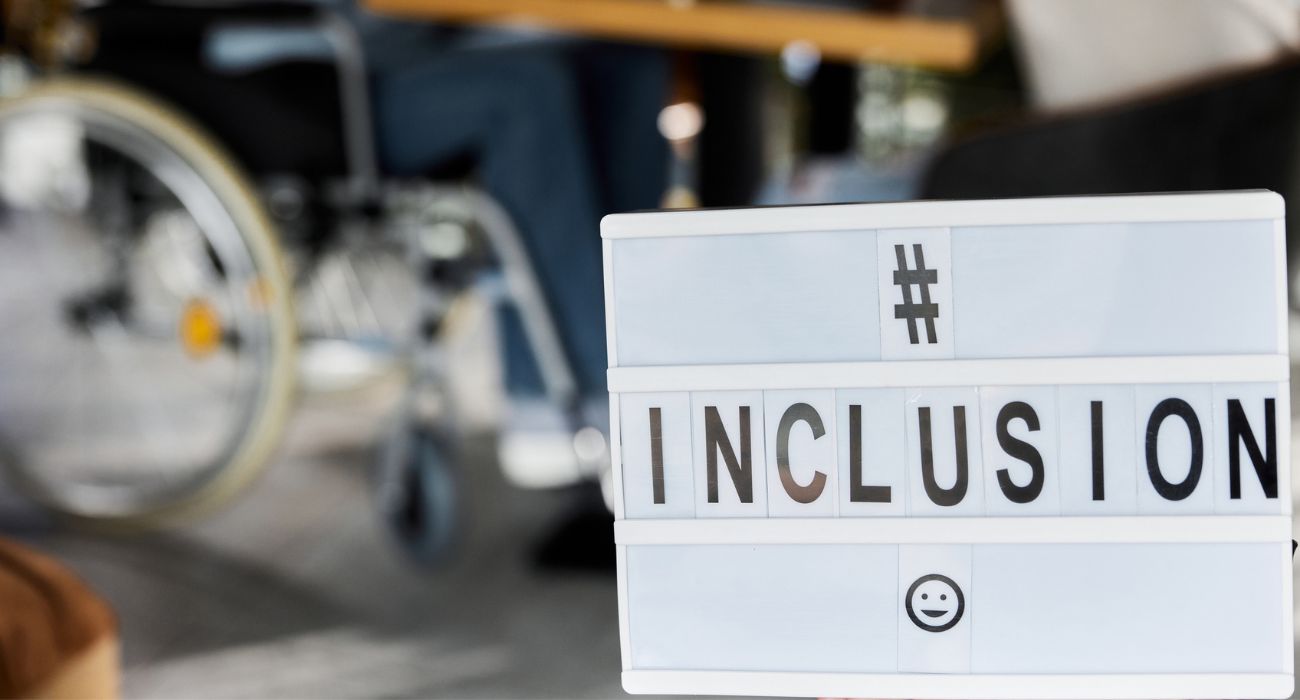It appears that “Christian nationalism” has become the boogeyman of the month. One op-ed in the Washington Post declares that it “exerts control and fosters political violence through public policies and institutions that seek to exterminate non-White, non-Christian, and non-heteropatriarchal thought from the nation.” Another op-ed in the Dallas Morning News says it’s “a threat to the America we love.” The New York Times recently reported on the “Far-Right Christian Quest for Power.”
I won’t deny that there are loud voices using Christianity as a cudgel against American liberal values. Some, like Harvard law professor Adrian Vermeule, want the United States (and the idea of a nation-state in general) replaced with a global order rooted in Catholicism. Others, like Newsweek’s Josh Hammer, desire an “ecumenical integralism” that would reshape the American legal system into an institution that promotes a broadly Christian conception of the common good at the expense of traditional liberal ones.
In any case, with figures like Vermeule and Hammer being so prominent on social media, and a media hostile to any expression of Christian faith, it is no surprise that religiously unaffiliated Americans like myself, who now constitute 30% of the country’s population, are concerned that the country may be backsliding into a theocracy.
But these concerns are unfounded. Not only does Christian involvement in the public square not pose a threat to American liberal values — it enhances them.
For one, Christianity has always shaped the United States’ moral character. Progressives often like to argue that the American founding was purely secular, sometimes pointing to the 1799 Treaty of Tripoli, which stipulated that “the government of the United States of America is not in any sense founded on the Christian Religion.” This argument is truthful in a literal sense, but a country can absorb a religion’s moral values without equating that religion’s doctrines to law.
John Adams, who was responsible for the Treaty of Tripoli (and an avowed Unitarian), famously observed that “Our Constitution was made only for a moral and religious People. It is wholly inadequate to the government of any other.” James Madison shared that view.
Even deists hostile to revealed religion argued that Christian moral teachings were superior, and that all children should learn them. Thomas Jefferson himself declared that Jesus was the world’s finest purveyor of ethics. When Jefferson advocated for the separation of church and state, he wanted to protect the church from the state; not the other way around. Thomas Paine, who ruined his life due to his public rejection of Christianity, agreed with Jefferson. There was relatively little conflict between deists and orthodox protestants like Patrick Henry on this issue since both groups believed in the importance of including Christian teachings within the public sphere.
But beyond the Founding Fathers, Christianity has also played a critical role in many of America’s most important moral advances. While myriad Enlightenment thinkers abhorred slavery and desired its end, few of them accomplished anything concrete in the pursuit of abolition. Christians, however, were much more successful.
Quakers and Puritans were at the forefront of the anti-slavery movement in the northeast. One Puritan text, The Selling of Joseph, was particularly influential. In 1791, Jonathan Edwards, who is often credited with spurring the Second Great Awakening, delivered a fiery abolitionist sermon that resulted in the creation of multiple abolitionist societies. Later abolitionist leaders, like William Lloyd Garrison, Sojourner Truth, and Charles Finney (a prominent Presbyterian minister) also rooted their opposition to slavery in Christianity.
More recently, the Christian faith was at the heart of the Civil Rights Movement. Martin Luther King, Jr. was, after all, a minister, and many of his early speeches were really sermons. He arguably rooted his pacifism in the New Testament. He was also not alone. One scholar wrote that the Civil Rights Movement’s “revivalistic forms and tendencies were often obvious to the participants-ministers and laypersons alike — and remain prominent in their memories.” Numerous civil rights leaders, like Revs. Fred Shuttlesworth and Abraham Woods, also began at the pulpit.
As James Madison warned in Federalist 10, we must always be cautious of the influences of passion and faction, and there are few factions as passionate as religious groups. That said, Christianity’s influence in American public life has been enduring and broadly positive. Christianity does not deserve the innate hostility and skepticism that the media has treated it with. Not all Christians are Adrian Vermeule, and Christianity deserves at least some credit for America’s greatness.
Garion Frankel (@FrankelGarion) is a graduate student at Texas A&M University’s Bush School of Government and Public Service and a Young Voices contributor. He serves as Chalkboard Review’s breaking news reporter.







Wow. A balanced, non-hysterical treatment of the role of Christianity in this great nation. How refreshing.